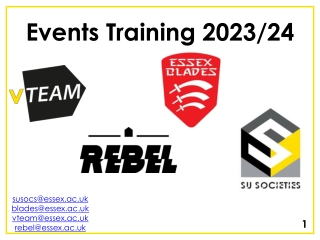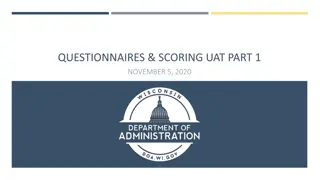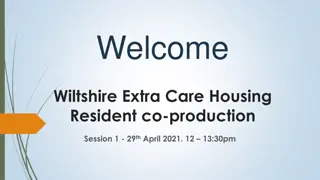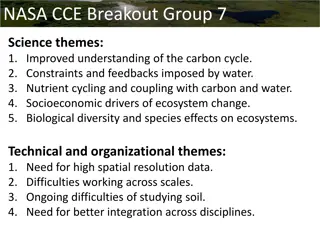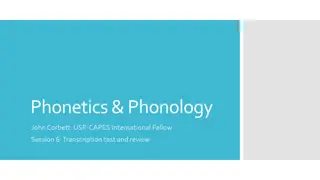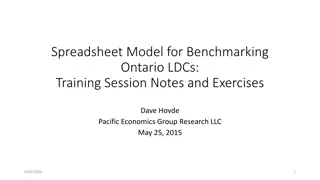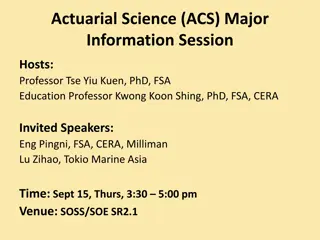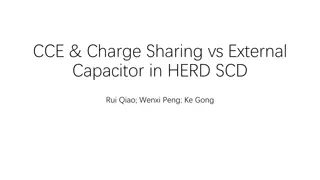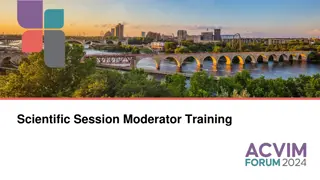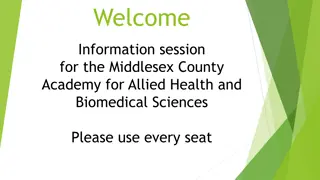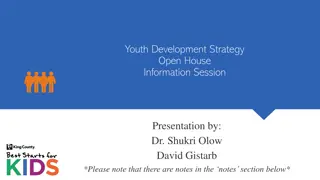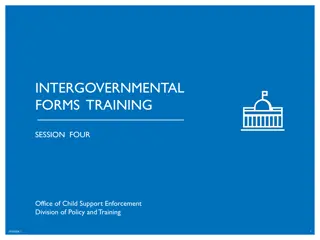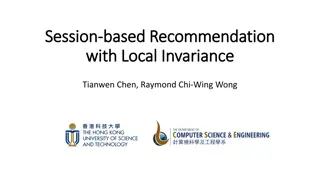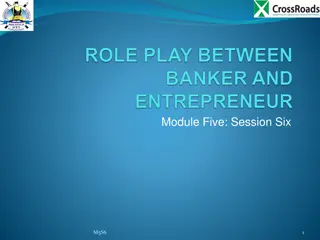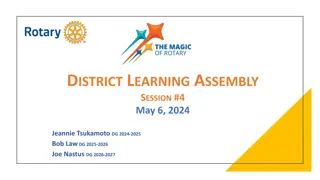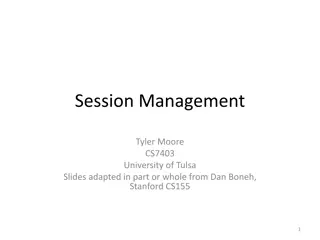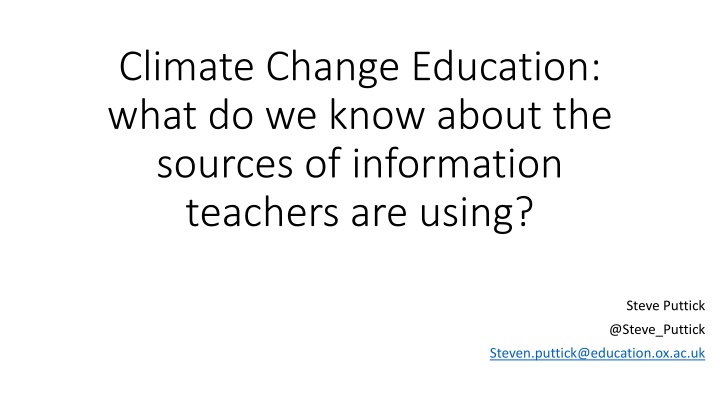
Teachers' Sources of Climate Change Information
Exploring the sources of information utilized by teachers in educating about climate change, this study delves into the critical juncture where information transitions to private control. It discusses the multifaceted nature of information and the methodologies employed in scoping reviews to analyze teacher practices.
Download Presentation

Please find below an Image/Link to download the presentation.
The content on the website is provided AS IS for your information and personal use only. It may not be sold, licensed, or shared on other websites without obtaining consent from the author. If you encounter any issues during the download, it is possible that the publisher has removed the file from their server.
You are allowed to download the files provided on this website for personal or commercial use, subject to the condition that they are used lawfully. All files are the property of their respective owners.
The content on the website is provided AS IS for your information and personal use only. It may not be sold, licensed, or shared on other websites without obtaining consent from the author.
E N D
Presentation Transcript
Climate Change Education: what do we know about the sources of information teachers are using? Steve Puttick @Steve_Puttick Steven.puttick@education.ox.ac.uk
as information moves from the public sphere to private control by corporations, a critical juncture in the quality of information available and the public s ability to sift and use it is at stake (Noble, 2018, p. 153)
What sources of information about climate change are teachers using? In what ways are teachers using these sources of information?
information as a conceptual labyrinth (Floridi, 2013, p. 19), or, more technically, a multifaceted and polyvalent concept . Therefore, the question what is information? is misleadingly simple (Floridi, 2016, p. 2).
Scoping review methodology Scoping review methodology 1: Identifying the research question 2: Identifying relevant studies 3: Study selection 4: Charting the data 5: Collating, summarizing, and reporting results (Levac et al., 2010, p.5)
What sources of information about climate change are teachers using? In what ways are teachers using these sources of information?
British Education Index (BEI) database, using Climate Change search term Plus Google Scholar, using search terms: climate change, teach* and resources 276 results from BEI plus 47 from Google Scholar Sorting process (titles and abstracts) reduced to 52 papers (full text scrutinized) Further narrowed to 13 papers that gave some direct attention to the sources of information about climate change that teachers use
Number, Author (Year) Location Study design, methods and sample Main focus, and attention given to sources of information about climate change used by teachers (2019) USA Online quantitative survey, with recruitment of 251 participants through seven science educator listservs (for educators interested in climate change) in five South Eastern U.S. states. Online survey with open responses for participants to write their arguments (counter-claim; evidence; reasoning) with 24 participants: K-12 teachers in Maryland and Delaware. Case studies of four Danish geography teachers in the lower- secondary school, including videoed classroom observations and semi-structured interviews. Investigation of the impact of cultural cognition (or worldview) on educators opinions about climate change education. The survey provides insight into teachers worldviews and suggests that these beliefs significantly influence their teaching about climate change. Sources of information are discussed at a general level in terms of their relative positions within broad worldview level framings. Focuses on the ways in which teachers respond to 10 common denial theories about anthropogenic climate change. Their intertextual discourse analysis reviews the epistemic quality of arguments, including reference to the sources of information that teachers use. Summarises sources of information that teachers use (p.855). 1. Kunkle and Monroe (2019) USA 2. Sezen- Barrie et al. (2018) Denmark This study explores the pedagogical content knowledge (PCK) of Danish geography teachers in the context of teaching weather formation and climate change. The focus is on pedagogical strategies used with students, with the sources of information informing these strategies being occasionally touched in the course of questions and observations about PCK. Centred around a professional development programme (the Climate Change Academy ), this study asks how concepts travel or are mobilized in different contexts. The case teacher is followed from the professional development to their classroom, showing the ways in which 3. Clausen (2018) USA A mixed-methods instrumental case study of one teacher participating in a professional development programme, 4. Drewes et al.
Findings Findings Small number of studies: relative lack of empirical attention Narrow geographical focus: no attention to countries in the Global South, and nearly half of the papers (six) are based in the USA. Two are based in Singapore; one in Cyprus, Denmark, Finland, Greece, Turkey Narrow range of designs: eleven rely on teachers reports of the issues through a survey, focus group or interview
Four main types of sources: the internet (studies 2010 onwards); government sources; mass media; professional development courses
One tension with the self-reported design Over 85% of teachers in Johnson s (2011) study expressed having no difficulties finding good climate change education resources online. However, teachers views, particularly ideas expressed about teaching both sides of anthropogenic climate change, leads Johnson to question the quality of this information.
Implications for research? Existing attention to knowledge and action should be balanced and underpinned by greater attention to sources of information Broader methodological approaches, particularly to supplement self-reports Developing interactions between digital geographies and geography education research Greater attention to and collaboration with geography education research beyond the US/Global North
Implications for teacher education? Giving greater attention to sources of information: how can teachers critically navigate the superabundance of information? Moving beyond simplistic biased/unbiased binaries to critically consider representation, production, transformation How can we prepare teachers to equip students to push back (?) against the ubiquitous platforms competing for their attention? Opportunities to engage with digital geographies through PGCE assignments? (methodological, substantive )
With thanks to Isobel Talks for collaboration and research assistance And thanks to Nuffield Foundation for funding the project Trust and Climate Change: Information for teaching in a digital age
References Arksey, H., & O'Malley, L. (2005). Scoping studies: Towards a methodological framework. International Journal of Social Research Methodology: Theory and Practice, 8(1), 19-32. doi:10.1080/1364557032000119616 Bakhurst, D. (2020). Teaching, Telling and Technology. Journal of Philosophy of Education, 54(2), 305-318. Chang, C.H. (2014) Climate Change Education: knowing, doing and being. Abingdon: Routledge. Clausen, S. W. (2018). Exploring the pedagogical content knowledge of Danish geography teachers: teaching weather formation and climate change. International Research in Geographical and Environmental Education, 27(3), 267-280. doi:10.1080/10382046.2017.1349376 Drewes, A., Henderson, J., & Mouza, C. (2018). Professional development design considerations in climate change education: teacher enactment and student learning. International Journal of Science Education, 40(1), 67-89. doi:10.1080/09500693.2017.1397798 Floridi, L. (2013). Information: A Very Short Introduction. Oxford: Oxford University Press. Floridi, L. (2016). The Routledge Handbook of Philosophy of Information. Abingdon: Routledge. Graham, M. (2020). Regulate, replicate, and resist - the conjunctural geographies of platform urbanism. Urban Geography, 41(3), 453-457. doi:10.1080/02723638.2020.1717028 Higde, E., Oztekin, C., & Sahin, E. (2017). Turkish pre-service science teachers' awareness, beliefs, values, and behaviourspertinent to climate change. International Research in Geographical and Environmental Education, 26(3), 253-263. doi:10.1080/10382046.2017.1330040 Iordanou, K., & Constantinou, C. P. (2014). Developing pre-service teachers' evidence-based argumentation skills on socio-scientific issues. Learning and Instruction, 34, 42-57. doi:10.1016/j.learninstruc.2014.07.004 Johnson, R. (2011). Climate Change Education in K-12: Teacher Preparation, Understanding, Needs and Concerns. Retrieved from Washington, DC: http://sites.nationalacademies.org/cs/groups/dbassesite/documents/webpage/dbasse_072566.pdf Kunkle, K. A., & Monroe, M. C. (2019). Cultural cognition and climate change education in the U.S.: why consensus is not enough. Environmental Education Research, 25(5), 633-655. doi:10.1080/13504622.2018.1465893 Lankshear, C., Peters, M., & Knobel, M. (2013). Information, knowledge and learning: Some issues facing epistemology and education in a digital age. Distributed Learning: Social and Cultural Approaches to Practice, 34(1), 16-37. doi:10.1111/1467-9752.00153 Levac, D., Colquhoun, H., & O'Brien, K. K. (2010). Scoping studies: advancing the methodology. Implementation Science, 5(69), 1-9. McNeal, P., Petcovic, H., & Reeves, P. (2017). What is motivating middle-school science teachers to teach climate change? International Journal of Science Education, 39(8), 1069-1088. doi:10.1080/09500693.2017.1315466 Michail, S., Stamou, A. G., & Stamou, G. P. (2007). Greek primary school teachers' understanding of current environmental issues: An exploration of their environmental knowledge and images of nature. Science Education, 91(2), 244-259. doi:10.1002/sce.20185 Noble, S. U. (2018). Algorithms of Oppression: How Search Engines Reinforce Racism. New York: New York University Press. Ratinen, I. J. (2013). Primary Student-Teachers' Conceptual Understanding of the Greenhouse Effect: A mixed method study. International Journal of Science Education, 35(6), 929-955. doi:10.1080/09500693.2011.587845 Rose, G., Raghuram, P., Watson, S., & Wigley, E. (2020). Platform urbanism, smartphone applications and valuing data in a smart city. Transactions of the Institute of British Geographers, tran.12400-tran.12400. doi:10.1111/tran.12400 Seow, T., & Ho, L. C. (2016). Singapore teachers beliefs about the purpose of climate change education and student readiness to handle controversy. International Research in Geographical and Environmental Education, 25(4), 358-371. doi:10.1080/10382046.2016.1207993 Sezen-Barrie, A., Shea, N., & Borman, J. H. (2019). Probing into the sources of ignorance: science teachers' practices of constructing arguments or rebuttals to denialism of climate change. Environmental Education Research, 25(6), 846-866. doi:10.1080/13504622.2017.1330949 Walshe, N., & Healy, G. (2020). Geography Education in the Digital World. Abingdon: Routledge. Wise, S. B. (2010). Climate Change in the Classroom: Patterns, Motivations, and Barriers to Instruction Among Colorado Science Teachers. Journal of Geoscience Education, 58(5), 297-309. doi:10.5408/1.35596

